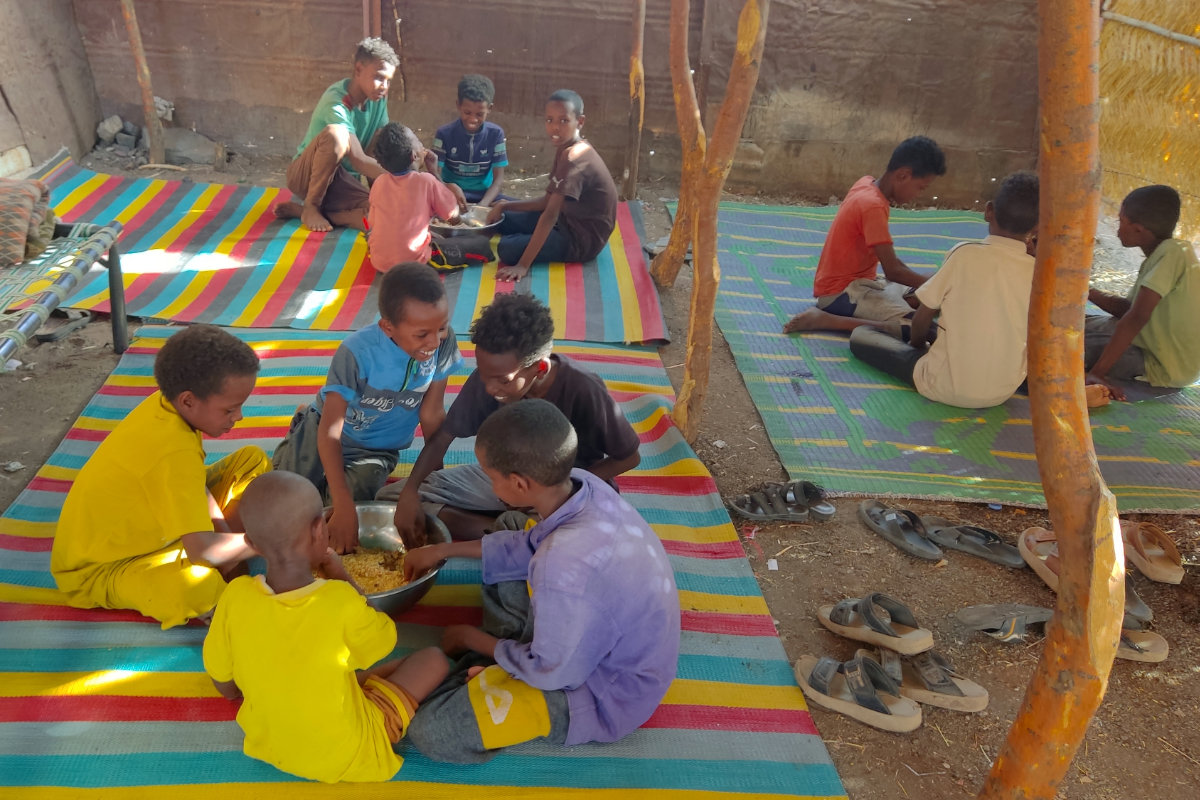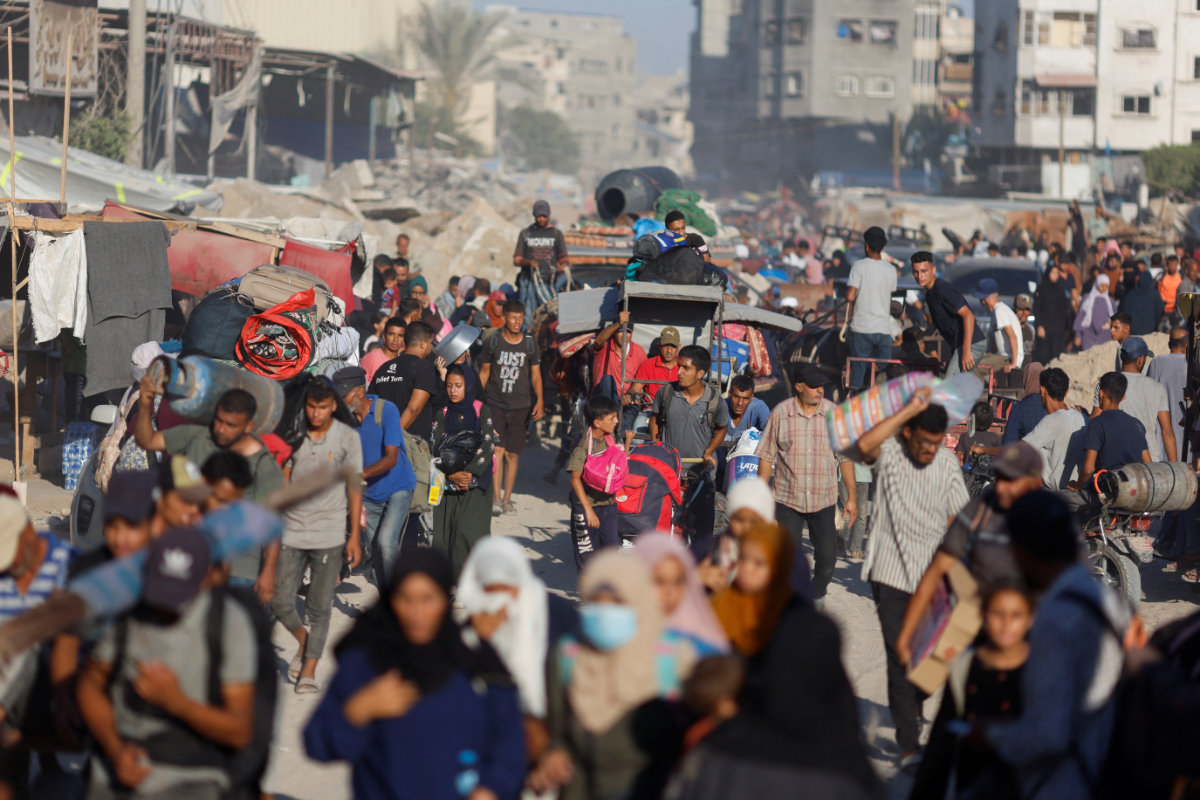WASHINGTON: With less than six months left in office, President Joe Biden and his team are going for bolder, higher-risk diplomacy on both Gaza and Sudan, seeking to make progress on intractable hotspots and — just maybe — burnish their legacy.
Biden, in an unusually personal appeal, joined the leaders of Egypt and Qatar in not only urging Israel and Hamas to reach a ceasefire but setting a date — Thursday — for them to meet in the region.
The approach mirrors a public call by Secretary of State Antony Blinken for the warring parties in Sudan to begin negotiations on Wednesday in Switzerland.
The strategy comes after months of painstaking efforts by US envoys yielded few tangible results in two conflicts that threaten to tarnish Biden, who at 81 decided not to seek a new term and to pass the torch to Vice President Kamala Harris.
Israel’s relentless campaign in Gaza, launched in response to a massive attack by Hamas, has stirred outrage in much of the world and within Biden’s Democratic Party.
While gaining fewer headlines, tens of thousands have also died in Sudan since rival generals went to war last year, with fears the country is on the brink of a famine unseen since Ethiopia in the 1980s.

Children sit together sharing a large bowl of food, as Sudanese families host internally displaced people coming from the central Sudanese state of Gezira to the eastern Sudanese city of Gedaref on June 3, 2024. (AFP)
Biden ran in 2020 on his foreign policy experience and on promises of a more normal presidency than that of his predecessor, Donald Trump.
He has highlighted as achievements his rallying of allies behind Ukraine following Russia’s invasion and his nuanced approach to China of raising pressure while seeking to avoid conflict.
“They came into office with one of their slogans being putting diplomacy first. But it’s really hard for me to pinpoint an area where they’ve had a major breakthrough — a ‘wow’ moment,” said Brian Katulis, senior fellow for US foreign policy at the Middle East Institute.
“They are looking for some sort of legacy” or at least “to put both of these conflicts on a more solid footing for what they hope will be a Harris administration,” Katulis said.
Trump, who is seeking a return to the White House, boasted about fostering the Abraham Accords, in which three Arab states normalized with Israel, and predecessor Barack Obama brokered major deals on Iran’s nuclear program, climate change and normalizing relations with Cuba.
Katulis said Biden’s diplomatic track record was inevitably beholden to events on the ground but also showed growing US risk aversion.
Early in his administration, Biden pursued diplomacy begun under Trump for a negotiated settlement in Afghanistan — which swiftly collapsed when the veteran Democrat withdrew the last US troops and the Taliban seized power.

Displaced Palestinians make their way as they flee the eastern part of Khan Younis, Gaza Strip, following an Israeli army evacuation order on August 8, 2024. (REUTERS)
Leslie Vinjamuri, director of the US and Americas program at Chatham House, said Biden clearly felt a “strong sense of urgency” not to leave office with multiple wars raging.
“The last thing the president wants is for a devastating war in the Middle East to be his legacy. This also has the potential to undermine Kamala Harris’s campaign,” Vinjamuri said.
Biden in recent days has stepped up the tone with Israel, to which he offered sweeping support following the Hamas attack on October 7.
Biden made known his frustration to Prime Minister Benjamin Netanyahu over the timing of the killing in Iran, presumably by Israel, of the Hamas political chief who was negotiating a ceasefire.
Blinken on Tuesday publicly called for restraint not only by Iran, which has vowed to retaliate, but by Israel.
Blinken has also said he is nearly finished negotiating an incentive package for a historic prize for Israel — diplomatic recognition by Saudi Arabia, guardian of Islam’s two holiest sites.
But the Saudis want movement toward a Palestinian state, an idea long resisted by Netanyahu and his far-right allies.
On Sudan, the United States is still trying to persuade the army to participate, with Blinken placing a call to General Abdel Fattah Al-Burhan and US mediators meeting a Sudanese delegation Friday in Saudi Arabia.
Biden’s diplomatic approach does not extend to all conflicts.
He secured the release last week of US prisoners in Russia in a swap but has refused to negotiate over Ukraine, a contrast to Trump whose advisers have suggested threatening to withhold military aid to Kyiv to force it into concessions to Moscow.
On Venezuela’s political crisis, the Biden administration has held off on major pressure on leftist leader Nicolas Maduro, preferring that Latin American powers Brazil, Mexico and Colombia take the lead.






















